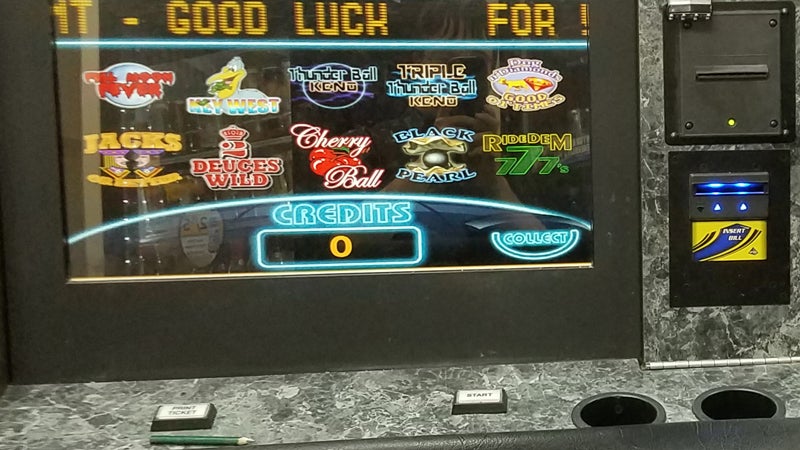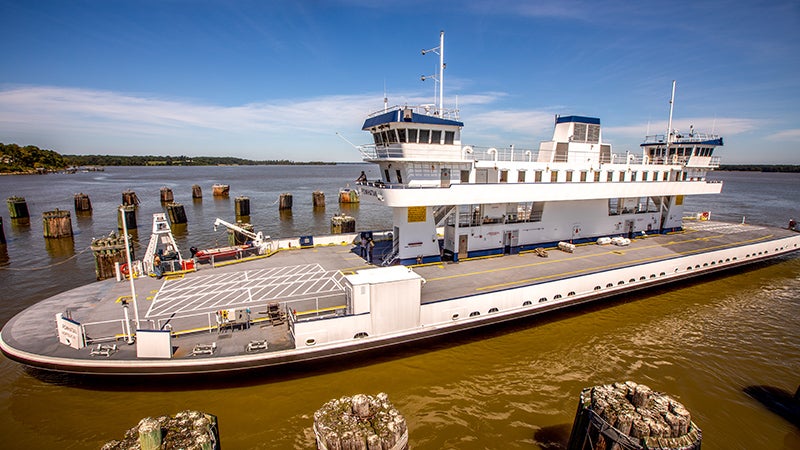Youngkin vetoes skill game legalization bill
Published 11:00 am Friday, May 24, 2024

- Skill game machines are currently banned under a 2020 state law. (File photo)
Gov. Glenn Youngkin last week vetoed legislation that would have legalized so-called “skill games.”
Senate Bill 212, sponsored by Sen. Aaron Rouse, D-Virginia Beach, had proposed repealing a 2020 law that reclassified the slots-style betting machines as illegal gambling, and would have instead taxed them. The bill, dubbed the Virginia Small Business Economic Development Act, would have authorized the Virginia Alcoholic Beverage Control Authority to begin issuing provisional registration in July to skill-game distributors operators and the convenience store and truck stop host establishments where the pay-to-play machines had been a common sight prior to the ban.
Youngkin had, on April 8, sent the bill back to the Senate with amendments that would have allowed localities to opt out of skill game legalization via a ballot referendum and would have explicitly prohibited the machines within 35 miles of any casino or racetrack, which would have kept the machines illegal in Isle of Wight County due to its proximity to the Rivers Casino in Portsmouth, and in much of Surry County for its proximity to Colonial Downs in New Kent County.
Youngkin’s veto comes a month after Sens. Lashrecse Aird, D-Petersburg, whose legislative district includes Surry, and Emily Jordan, R-Isle of Wight, voted with the majority in a 34-6 Senate vote on April 17 to reject Youngkin’s amendments and send the bill back to him unchanged. If approved,
“In recent years, the Commonwealth of Virginia has authorized casinos, sports betting, and parimutuel wagering, on top of longer-standing gaming options like the Virginia Lottery, horse racing, and charitable gaming,” Youngkin said in his veto statement. “When it comes to additional gaming options, such as games of skill, we must proceed with a robust set of safeguards. I sent over a package of amendments which addressed my many concerns with the bill. While it is regrettable that my recommendations were not adopted, I remain open to working with the General Assembly going forward on this subject.”
Isle of Wight only began enforcing the ban in January after a three-year legal battle ended last fall with Virginia’s Supreme Court lifting an injunction against enforcement. Emporia truck stop owner Hermie Sadler, who ran against Jordan in a Republican primary last year for her Senate seat, had sued the state in 2021 just as the 2020 ban would have taken effect, arguing the ban gave an unfair advantage to the handful of casinos the state had authorized to operate in Virginia’s larger cities. He’d secured the now-lifted injunction in Greenville County Circuit Court in 2022 with the help of his attorney, state Sen. Bill Stanley, R-Franklin County.
The Virginia Merchants and Amusement Coalition or VA MAC, which had lobbied for SB 212’s passage, said in a May 17 statement, “While we are disappointed that Senate Bill 212, strong bipartisan legislation to regulate and tax skill games, was vetoed by the Governor, we remain optimistic about working with Governor and Legislature on a resolution in the coming weeks.”
“For years, thousands of small businesses throughout the Commonwealth have come to rely on the supplemental, sustainable revenue provided by skill games,” VA MAC’s statement reads. “These games have given thousands of small business owners peace of mind knowing they can keep their doors open, create jobs, and support their local communities.”
Pace-O-Matic, a skill-game software developer that had championed Sadler’s cause, contends Virginia is missing out on an estimated $100 million by banning rather than taxing the slots-style machines, while the American Gaming Association, a casino industry lobbyist, contends the machines lack the same consumer protections required of casinos.
According to Christina Freundlich, whose consulting firm, Pod 3 Strategies, disseminated the VA MAC statement, there are plans in the works to call another special General Assembly session later this year to address the skill games issue.





